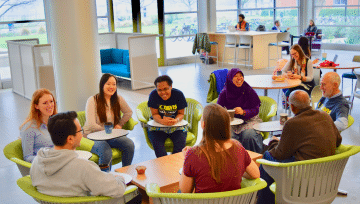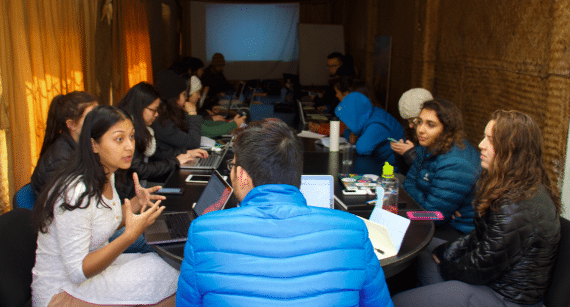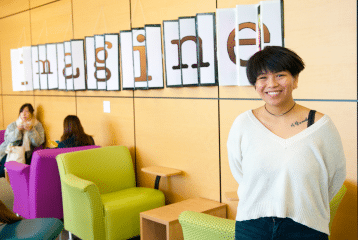University of California, Davis (USA)
UC Davis: Boldly Committed to Civic Engagement and Social Benefit
As a public land grant institution, the University of California, Davis, has a deeply-rooted commitment to civic engagement and social benefit. These values are reflected in teaching, research and service across our ten colleges and schools, our many centers, institutes and clinics, and our student-led programming. Recently, the campus has launched several bold initiatives that aim to both deepen and link efforts across campus.
 Global Education for All aims to engage every UC Davis student—undergraduate, graduate and professional—in global learning. A campus-wide steering committee is facilitating expansion of opportunities that support students across disciplines to
Global Education for All aims to engage every UC Davis student—undergraduate, graduate and professional—in global learning. A campus-wide steering committee is facilitating expansion of opportunities that support students across disciplines to
- become informed, open-minded people who are attentive to diverse perspectives across the spectrum of differences,
- understand how their actions affect—and are affected by—local and global issues, and
- build capacity to address the world’s most pressing and enduring issues collaboratively and equitably (adapted from AAC&U VALUE: Valid Assessment of Learning in Undergraduate Education, 2014).

Global Education for All moves beyond traditional study abroad to provide students with a variety of experiences tailored to their interests, skills and aspirations. This includes expanding global learning opportunities via academic coursework on and away from campus, experiential learning domestically and internationally (including applied, community-engaged research and service learning), and co-/extra-curricular learning and leadership that taps and cultivates the cultural wealth that our students bring to UC Davis.
 Many researchers and units across UC Davis are committed to engaged scholarship. For example, as the current institutional home of Imagining America, we are connected with a national network of college and university members and community partners that is involved in cultural organizing and collaborative research and action projects that tap the humanities, arts and design. The Center for Regional Change connects faculty, students and community stakeholders to conduct research that promotes regional equity, vitality and sustainability. John Muir Institute of the Environment links science and technology to policy, providing settings for interaction between researchers, regulatory agencies, policymakers, and the public. These are but a few of the many resources that are being identified and further linked through a campus/community planning process to strengthen support for public scholarship and build on the synergies of existing efforts.
Many researchers and units across UC Davis are committed to engaged scholarship. For example, as the current institutional home of Imagining America, we are connected with a national network of college and university members and community partners that is involved in cultural organizing and collaborative research and action projects that tap the humanities, arts and design. The Center for Regional Change connects faculty, students and community stakeholders to conduct research that promotes regional equity, vitality and sustainability. John Muir Institute of the Environment links science and technology to policy, providing settings for interaction between researchers, regulatory agencies, policymakers, and the public. These are but a few of the many resources that are being identified and further linked through a campus/community planning process to strengthen support for public scholarship and build on the synergies of existing efforts.
Finally, Aggie Square is a new partnership between the city of Sacramento and UC Davis. It is envisioned as a state-of-the-art live/learn/work/play environment that is conductive to collaboration across disciplines and among campus and community partners. Aggie Square is intended to be a regional locus for UC Davis’ commitment to civic engagement, social good, and regional equity and prosperity.